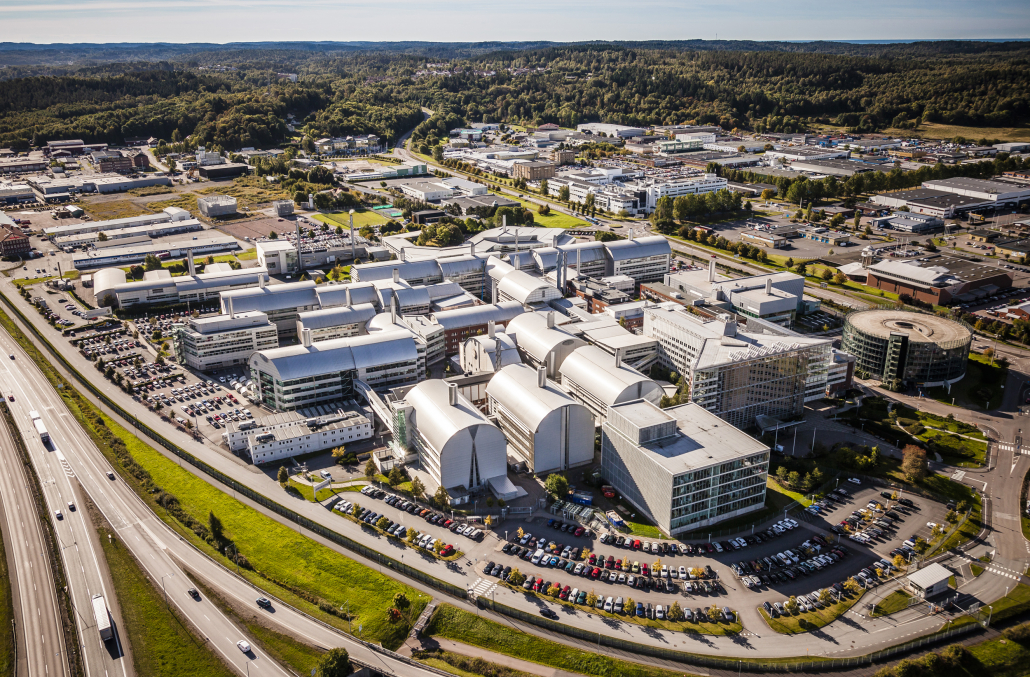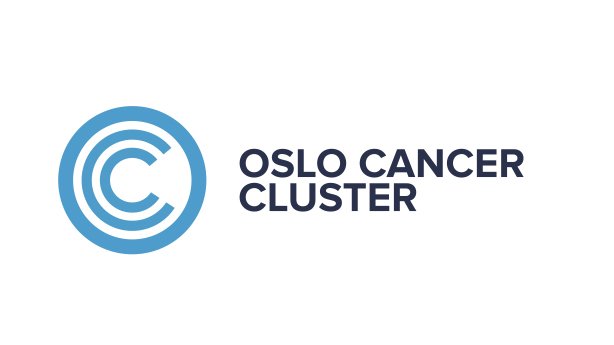
De fire helseklyngene i Norge skal fra neste år samarbeide om et veikart for bedrifter som ser mot det amerikanske markedet.
Scroll down for an English version of this article.
Med over 700 000 selskaper innen helse har USA den største helseindustrien globalt. Viken Fylkeskommune støtter og muliggjør prosjektet til helseklyngene.
Prosjektet bærer navnet “USA neste! Veikart til internasjonalisering for helsebedrifter”, og starter opp i januar 2022. De fire helseklyngene som går sammen om prosjektet er Norwegian Smart Care Cluster, Norway Health Tech, Oslo Cancer Cluster og The Life Science Cluster.
Et puff ut i verden
– Målet med prosjektet er å hjelpe bedrifter med internasjonal satsing. Med utgangspunkt i den samlede kunnskapen og erfaringen klyngene har opparbeidet over tid, vil vi utvikle et bedre veikart ved å samarbeide, enn hver for oss. Synergiene vil bidra til å akselerere bedriftenes internasjonaliserings- og eksportaktiviteter ytterligere slik at vekst i omsetning, arbeidsplasser og verdiskaping vil skje raskere enn hvis dette samarbeidet ikke finner sted, sier Therese Oppegaard, prosjektleder i Norwegian Smart Care Cluster.
USA er et viktig internasjonalt marked med stort potensiale. Bedrifter som lykkes der, har høy sannsynlighet for å lykkes i andre markeder. Når klyngene nå setter i gang et felles krafttak for internasjonalisering, blir det naturlig å søke samarbeid med Innovasjon Norge for å optimalisere arbeidet.
– Prosjektet USA neste! skal gi gründere og oppskaleringsbedrifter tilgang på ekspertise og nettverk de ellers normalt ikke har tilgang til, opplyser Oppegaard.
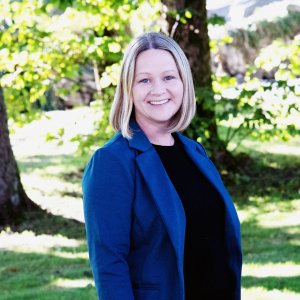
Therese Oppegaard, prosjektleder i Norwegian Smart Care Cluster.
Et steg videre
Det internasjonale aspektet ved utvikling av bedre kreftlegemidler og diagnostikk har alltid vært viktig for Oslo Cancer Cluster, som nå ønsker å bygge videre på internasjonale initiativer med dette nye samarbeidet.
– Vi ønsker å skape ny innsikt, nye fora og muligheter for nytt samarbeid for våre medlemmer, og for det nasjonale økosystemet vi har for helseinnovasjon, sier Jutta Heix, Head of International Affairs og prosjektleder i Oslo Cancer Cluster.
– Ved å styrke nettverkene for klynger og helsenæring mellom Norge og USA, kan vi også gi bedre støtte til oppstarts- og biotechbedrifter på deres vei til nye forretningsmuligheter, sier Heix.
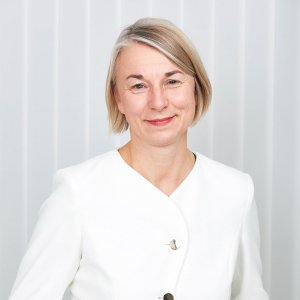
Jutta Heix, Head of International Affairs i Oslo Cancer Cluster
Samarbeid forenkler veien
Chelsea Ranger, forretningsutvikler og investor-rådgiver, deltar i samarbeidsprosjektet fra The Life Science Cluster.
– Vi skal gjøre veien til det amerikanske markedet enklere og raskere for våre medlemmer. Når alle helseklyngene samarbeider, øker effekten av arbeidet, uavhengig av hvilken klynge selskapene er en del av. Vi representerer fire ulike industrisegmenter, men mulighetene for å jobbe smart sammen for å øke eksporten av norsk helseindustri, er store, sier Ranger.
– Det er mange gode norske oppstartsbedrifter med stort potensial for å lykkes i USA. Gjennom dette samarbeidet får de verdifulle kontakter mot industriledende eksperter, viktige fagmiljøer og ikke minst til investorer. Disse selskapene står i kapitalintensive utviklingsløp med høy risiko, og mange er avhengig av investorer i utlandet for å lykkes, avslutter Ranger.
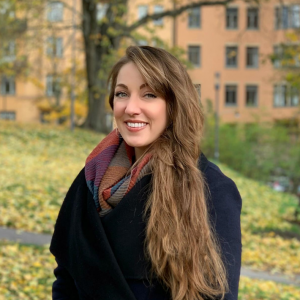
Chelsea Ranger, prosjektleder i The Life Science Cluster.
En felles innsats
USA er blant de tre høyest prioriterte markedene for internasjonalisering og eksport hos de fire klyngene. Dette prosjektet legger til rette for å utnytte kontaktflater, kompetanse, medlemsmasse og allerede etablerte nettverk i ulike deler av USA.
Prosjektet er en felles innsats, og ledes av Trine Radmann fra Norway Health Tech.
– Vi tror fantastiske ting vil skje når de fire helseklyngene i Norge jobber sammen mot det amerikanske markedet. Forventningene er skyhøye til hva vi kan gjøre for å lette veien inn til verdens største helsemarked for norske helseselskap. Vi skal lytte, bygge kunnskap og hjelpe bedriftene. Veikartet til USA som nå skal utvikles gjennom dette programmet, kan brukes for fremtidige generasjoner av unge selskap som ser mot USA, sier Radmann.
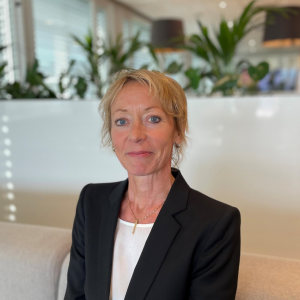
Trine Radmann, prosjektansvarlig for USA Neste! og prosjektleder i Norway Health Tech.
Om USA Neste!
FINANSIERING: Viken Fylkeskommune
HVEM: Norwegian Smart Care Cluster, Norway Health Tech, Oslo Cancer Cluster og The Life Science Cluster
HVA: Aktivitetene i prosjektet deles overordnet inn i fire områder:
- Kartlegging/mobilisering
- Opplæringsprogram
- Internasjonalisering
- Eksponering
OPPSTART: Prosjektet starter i januar 2022
KONTAKT: Ta kontakt med en av de fire prosjektlederne om du er interessert i mer informasjon:
Prosjektet er muliggjort av Viken Fylkeskommune.

A common road map secures the path to the American health market
From next year, the four health clusters in Norway will collaborate on a roadmap for companies looking at the American market.
This is a translated text from the Norwegian article above.
With over 700,000 health companies, the United States has the largest health industry globally. Viken County Municipality supports and enables the project for the health clusters.
The project is called «USA next! Roadmap to internationalization for health companies », starting in January 2022. The four health clusters that join forces on the project are the Norwegian Smart Care Cluster, Norway Health Tech, Oslo Cancer Cluster, and The Life Science Cluster.
“The goal of the project is to help companies with international investment. Based on the overall knowledge and experience the clusters have gained over time, we will develop a better roadmap by collaborating, than each for us. The synergies will help to accelerate the companies’ internationalization and export activities further so that growth in turnover, jobs, and value creation will take place faster than if this collaboration didn’t happen,” says Therese Oppegaard from Norwegian Smart Care Cluster.
The United States is an important international market with great potential. Companies that succeed there have a high probability of success in other markets. When the clusters now join forces for internationalization, a logical step is to seek cooperation with Innovation Norway to optimize the work.
“The project USA next! will give entrepreneurs and scaling companies access to expertise and networks they otherwise don’t have access to,” Oppegaard states.
One step further
The international aspect of developing better cancer drugs and diagnostics has always been important for Oslo Cancer Cluster, who will build on previous international initiatives with this new collaboration. – We want to create new insights, new forums, and opportunities for new collaboration for our members, and for the national ecosystem we have for health innovation, says Jutta Heix, Head of International Affairs in the Oslo Cancer Cluster, and project manager from the cluster.
“By strengthening the networks for clusters and health industries between Norway and the US, we can also provide better support to start-up and biotech companies on their way to new business opportunities,” says Heix.
Chelsea Ranger, business developer and investor advisor, contributing in the collaborative project from The Life Science Cluster, adds:
“We will make the road to the American market easier and faster for our members. When all the health clusters work together, the effect of the work increases, regardless of which cluster the companies are part of. The clusters represent four different industry segments, but the opportunities for working smart together to increase exports of the Norwegian health industry are great.”
“There are many good Norwegian start-up companies with great potential for success in the US. Through this collaboration, they gain valuable contacts with industry-leading experts, important professional environments and not least investors. These companies are in capital-intensive development races with high risk, and many depend on international investors to succeed,” Ranger concludes.
The United States is among the three most prioritized markets for internationalization and exports for the four clusters. This project facilitates the utilization of contact surfaces, expertise, membership and already established networks in various parts of the USA.
The project is a joint effort, and is led by Trine Radmann from Norway Health Tech.
“We think fantastic things will happen when the four health clusters in Norway work together towards the American market. Expectations are sky high for what we can do to facilitate the way into the world’s largest health market for Norwegian health companies. We will listen, build knowledge, and help companies. The road map to the USA, which will now be developed through this program, can be used for future generations of young companies looking towards the USA,” says Radmann.
The project starts in January 2022, contact one of the four contact persons below if you are interested in more information:
The project is made possible by Viken Fylkeskommune

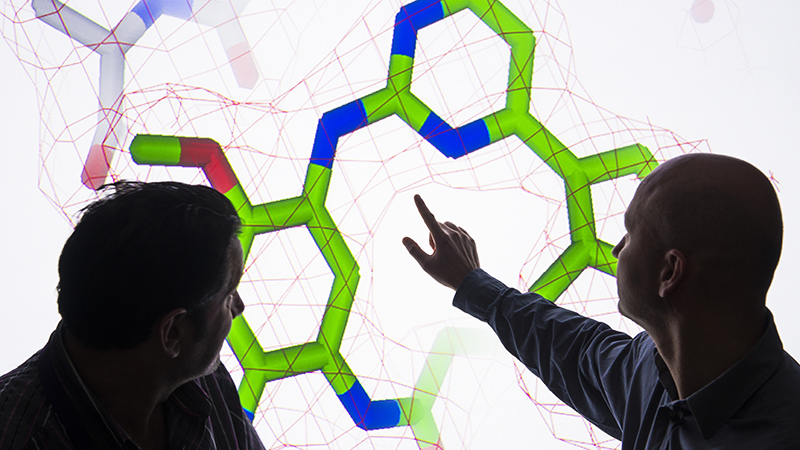 AstraZeneca
AstraZeneca